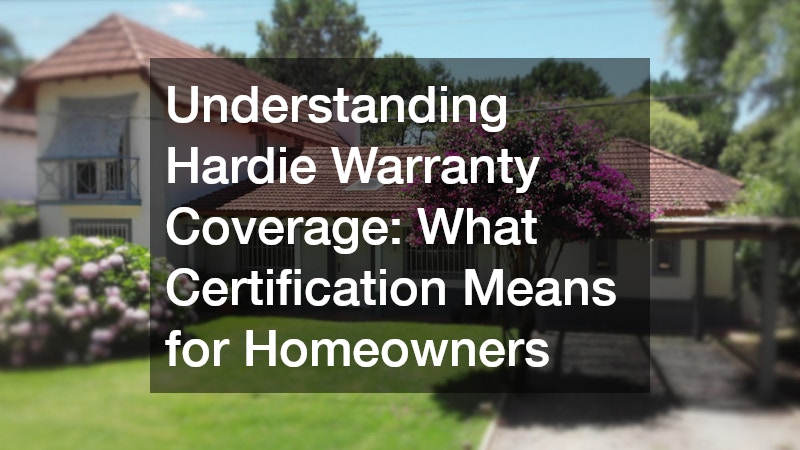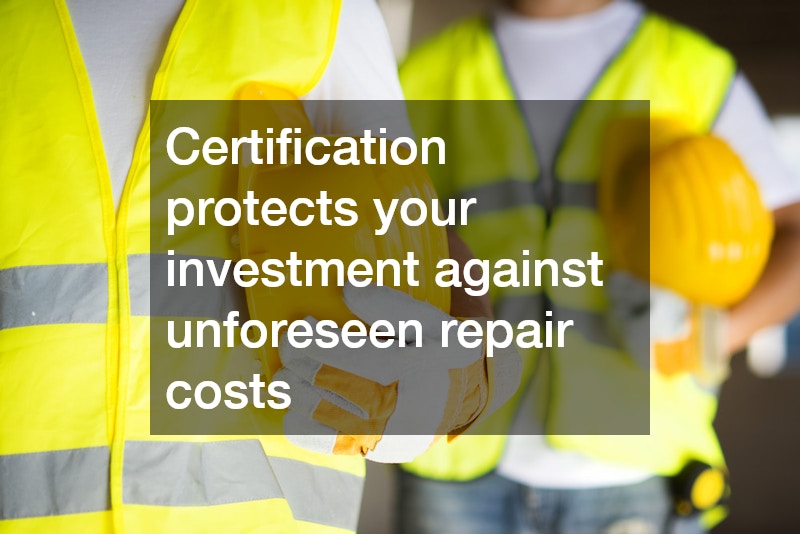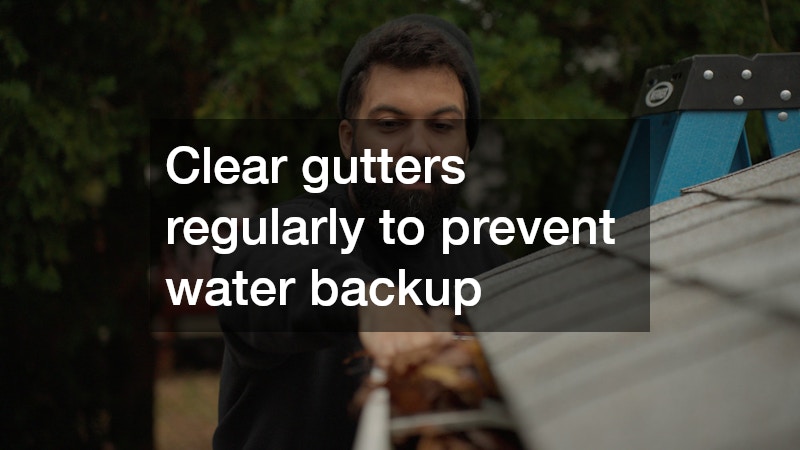Key Takeaways
-
Hiring a Hardie certified siding contractor ensures both material and labor coverage under the Hardie warranty.
-
Non-certified installers typically provide only material coverage, leaving homeowners responsible for labor costs in case of installation errors.
-
Proper installation by certified Hardie roofers and siding contractors reduces the risk of moisture intrusion, warping, and premature wear.
-
Warranties are often transferable, increasing resale value when documentation from certified installers is maintained.
-
Routine maintenance—cleaning, inspections, and re-caulking—is necessary to keep warranties valid.
-
Verified certification indicates contractor training, ongoing education, and adherence to Hardie installation standards.
-
Combining siding, roofing, and trim installation by certified professionals maximizes the home’s energy efficiency, durability, and aesthetic appeal.

When investing in a home exterior remodel, choosing the right materials and contractors is crucial to protect your investment. James Hardie siding is widely regarded as a premium, durable solution for homes, but the benefits go beyond aesthetics and performance. Proper installation by a Hardie certified siding contractor and roofer is essential to ensure full warranty coverage. Many homeowners overlook the critical difference between certified and non-certified installers, which can impact labor coverage, product protection, and long-term peace of mind.
This article provides an in-depth look at Hardie warranty coverage, explains why certification matters, and gives homeowners actionable advice for hiring the right professionals.
What Is Hardie Certification?
Hardie certification is a program designed to ensure that contractors have the proper training and experience to install James Hardie products correctly. While it is not a state license, it is a professional credential that reflects expertise and adherence to manufacturer guidelines.
Overview of the Certification Program
-
Hardie certified contractors must complete specialized training, including hands-on installation practices, moisture management techniques, and proper flashing methods.
-
Certification requirements often include passing exams, submitting references, and maintaining ongoing education to stay current with new product lines and installation methods.
-
Some certification programs differentiate between siding and roofing installation, ensuring installers are experts in each product type.
Why Certification Matters
Hiring a Hardie certified siding contractor ensures your installation is done according to manufacturer standards. This matters because:
-
Proper installation reduces the risk of water intrusion, warping, and premature material failure.
-
Certified contractors provide labor-inclusive warranties that non-certified installers cannot offer.
-
Certification signals reliability, professionalism, and experience, which helps in vetting contractors.
Common Misconceptions
-
Certification does not replace local licensing or insurance requirements; it complements them.
-
It does not automatically cover homeowner negligence—maintenance and proper use remain essential.
-
Some homeowners mistakenly believe that any contractor can provide a Hardie warranty. In reality, only certified contractors are eligible for certain warranty programs.
Understanding Hardie Warranty Coverage
James Hardie provides one of the most comprehensive warranty programs in the siding industry. Understanding the scope and limitations is critical before beginning a remodel.
Standard Warranty Overview
Hardie warranties typically include:
-
Materials coverage: Protection against manufacturing defects for fiber cement products such as HardiePlank®, HardieShingle®, and trim boards.
-
Paint finish coverage: For pre-finished products, warranties often cover color retention and peeling under normal conditions.
-
Labor-inclusive coverage: Only available when installation is performed by a Hardie certified siding contractor or certified Hardie roofer.
Typical warranty lengths:
-
Siding: 30 years for fiber cement products.
-
Trim and specialty products: 15–30 years depending on the product.
-
Paint finishes: Usually 15 years for standard pre-finished products, longer for certain premium finishes.
Warranty Limitations
-
Improper installation, including incorrect nailing or insufficient flashing, may void the warranty.
-
Structural deficiencies in the home, like uneven framing, can affect performance and coverage.
-
Extreme weather events or natural disasters are often excluded.
-
Homeowner neglect, such as failing to clean debris or maintain caulking, can lead to denied claims.
Differences by Product Type
-
Fiber cement siding: Offers high durability and is moisture-resistant; material defects are covered for decades.
-
HardieShingle® siding: Specifically designed for a wood-shingle appearance; requires certified installation to maintain labor coverage.
-
Trim boards and soffit panels: Often have shorter material warranties, emphasizing the importance of proper installation.
Certified vs. Non-Certified Contractors: Warranty Differences
The distinction between using a certified contractor and a non-certified installer is one of the most important decisions a homeowner can make.
Certified Contractors
-
Material and labor coverage included: Certified installation ensures that both the siding or roofing product and the labor performed are covered.
-
Extended warranties: Some programs extend paint finish or siding coverage if the installer is certified.
-
Installation quality assurance: Certified contractors are trained in moisture management, flashing, and proper fastener techniques.
Non-Certified Installers
-
Material warranties typically still apply but labor coverage is excluded. This means if installation errors cause problems, the homeowner is responsible for repair costs.
-
Increased risk of voided warranty due to improper techniques.
-
Limited recourse in the event of defects or water intrusion.
Examples of Scenarios
-
Scenario 1: Improper caulking or flashing installed by a non-certified contractor allows water to seep behind siding, resulting in mold or rot. The material warranty covers the siding itself, but not the labor to remove and reinstall.
-
Scenario 2: Certified Hardie siding contractor installs siding correctly, ensuring flashing, caulking, and fasteners meet specifications. If water intrusion occurs due to a manufacturing defect, both materials and labor are covered.
Why Homeowners Should Prioritize Certification
-
Ensures long-term protection and peace of mind.
-
Protects investment against unforeseen repair costs.
-
Maintains eligibility for manufacturer-backed warranties.
-
Supports home resale value, as buyers recognize certified installations.

Steps to Ensure Full Warranty Protection
Following a few critical steps helps homeowners maximize their Hardie warranty benefits.
-
Hire verified Hardie certified siding contractors: Use the official Hardie website or local listings to confirm credentials.
-
Check certification validity: Certifications must be current; expired credentials may reduce warranty coverage.
-
Document all contracts and installation details: Include product registration forms, receipts, and work agreements.
-
Maintain the exterior regularly: Clean siding, inspect flashing, and repair caulking as needed to prevent damage.
-
Schedule periodic inspections: Certified contractors can perform yearly checks to identify issues before they escalate.
Common Homeowner Questions About Hardie Warranties
Q1: Does certification affect paint finish warranties?
Yes. Certified installers often qualify for extended paint warranties because proper installation minimizes moisture and adhesion issues that can cause peeling or fading.
Q2: Can a warranty be transferred if I sell my home?
Yes. Many Hardie warranties are transferable to new owners, which enhances resale value. Documentation from the certified contractor is essential for this process.
Q3: What happens if I hire a non-certified contractor by mistake?
Material warranties still apply, but labor coverage is void. Homeowners are responsible for any repairs due to installation errors.
Q4: Are there regional differences in coverage?
Some warranty terms may vary based on climate or local regulations. A local Hardie certified siding contractor can advise on region-specific best practices.
Real-Life Case Studies
Case Study 1: Certified Installation
-
Homeowner hired a certified siding contractor for a full HardiePlank installation.
-
Severe rain exposed a minor installation issue, but both materials and labor were covered under the Hardie warranty.
-
Repairs completed quickly at no additional cost.
Case Study 2: Non-Certified Installation
-
Another homeowner hired a non-certified installer. Water infiltration occurred due to improper flashing.
-
Material warranty covered siding replacement, but labor costs were the homeowner’s responsibility, resulting in thousands in out-of-pocket expenses.
Lessons Learned: Hiring a certified contractor is essential for both coverage and peace of mind.
Tips for Choosing a Hardie Certified Contractor
-
Verify certification: Check the Hardie website or ask for proof of certification.
-
Ask for references and past projects: Confirm experience with similar homes and project types.
-
Confirm ongoing training: Ensure the contractor participates in continuous education programs.
-
Ensure multi-product expertise: If doing a full exterior remodel, choose contractors familiar with siding, roofing, and trim installation.
-
Review contract and warranty documents: Make sure labor and materials are explicitly covered.

Maintenance and Long-Term Care
Proper maintenance ensures your Hardie warranty remains valid and your exterior performs optimally.
Siding Maintenance:
-
Wash at least once per year with a mild detergent.
-
Inspect for cracks, warping, or loose panels.
-
Re-caulk or seal gaps as recommended.
Roof Maintenance:
-
Clear gutters regularly to prevent water backup.
-
Inspect flashing and underlayment, especially after storms.
-
Maintain reflective coatings if applicable.
Windows and Trim:
-
Check seals for wear.
-
Clean glass surfaces with non-abrasive cleaners.
-
Ensure trim boards and fascia remain painted or sealed per manufacturer instructions.
A certified siding contractor often offers inspection services to help homeowners keep their warranties intact.
Investing in Hardie siding and roofing products is an excellent way to protect and enhance your home. However, the full value of these materials depends on proper installation by Hardie certified siding contractors and certified Hardie roofers. Certification ensures labor-inclusive warranty coverage, installation expertise, and long-term durability.
Homeowners should always verify contractor credentials, maintain documentation, and follow recommended maintenance schedules. By prioritizing certified professionals, you not only safeguard your investment but also enhance comfort, reduce long-term costs, and increase property value. Proper installation, careful selection of materials, and ongoing care make the difference between a standard siding project and a worry-free, fully protected Hardie exterior remodel.
